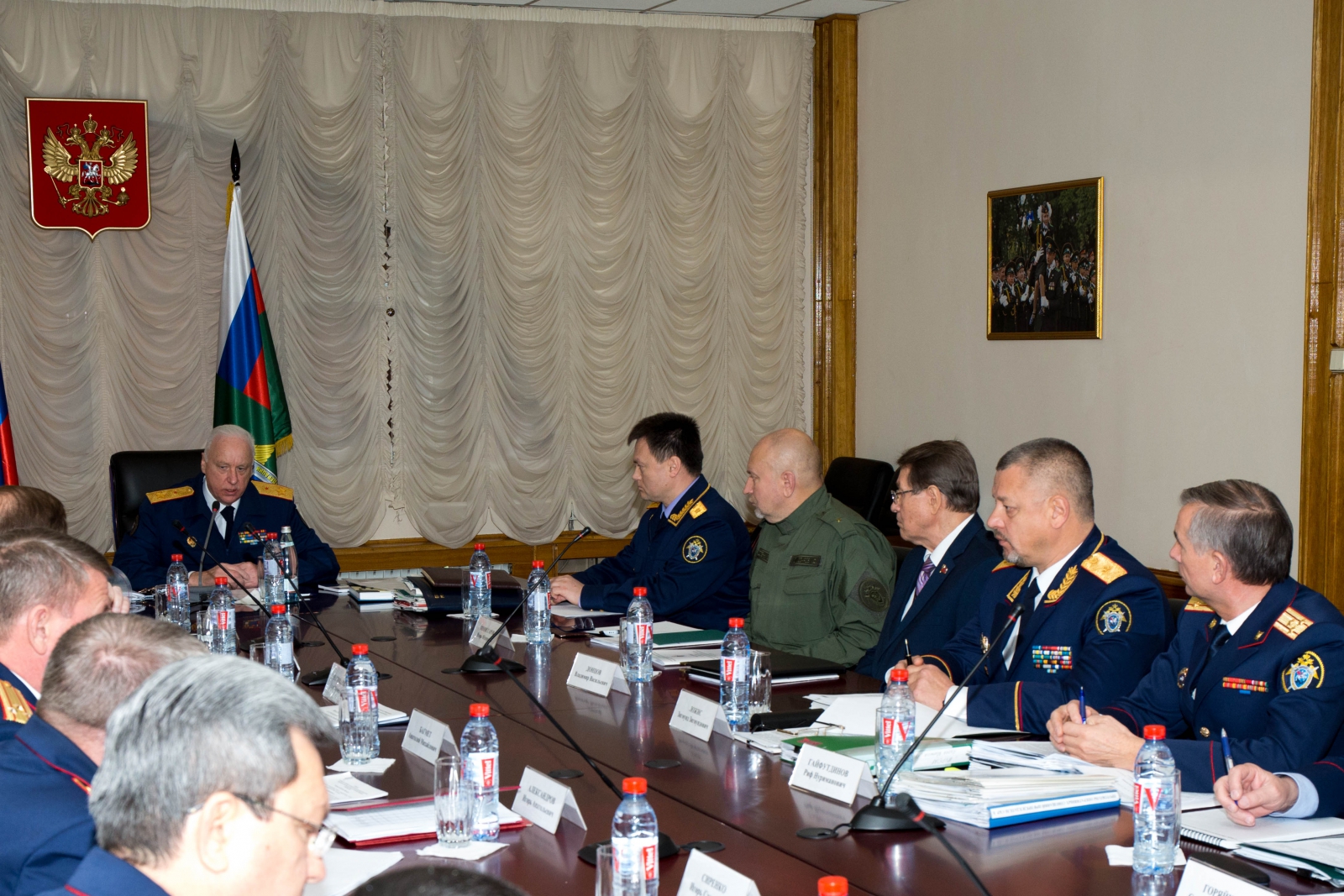
Address of the reception office of the Investigative Committee: Moscow, ul. Pervaya Frunzenskaya, d 3a
Address for writtent applications: 105005, Moscow, Tekhnichesky Pereulok, 2
Address of the reception office of the Investigative Committee: Moscow, ul. Pervaya Frunzenskaya, d 3a
Address for writtent applications: 105005, Moscow, Tekhnichesky Pereulok, 2

Today Alexander Bastrykin held a regular briefing on educational system development in the Investigative Committee of Russia. The briefing was attended by Deputy Chairman of the Investigative Committee of Russia Igor Krasnov, senior assistant of the Chairman Igor Komissarov, chiefs of several units of the Central Office, educational organizations and regional offices of the Investigative Committee of Russia, and the Chairman of the National Association of investigative veterans’ organizations “Union of Investigation Veterans” Vladimir Dontsov.
In his opening speech, Alexander Bastrykin underlined critical importance of training of personnel and building workforce for the Investigative Committee.
The briefing agenda included discussion of creating five branches of the Academy of the Investigative Committee and development of a network of cadet schools.
The substantive report on “Measures for improvement of training in the Investigative Committee of Russia” was presented by the Head of the Educational Outreach Directorate Sergey Petrov. He focused on transition to staffing the Investigative Committee units with graduates of institutional universities. The rectors of the Investigative Committee Academies and chiefs of regional investigations offices reported on preparatory activities for development of the educational institutions structure of the Committee.
It was decided to create branches of Academies on the basis of five faculties of the Institute of postgraduate training. The Saint Petersburg Academy of the Investigative Committee of Russia was instructed to organize creation of branches in Rostov-on-Don and Nizhny Novgorod, and the Moscow Academy is to provide for performance of branches in Khabarovsk, Novosibirsk and Yekaterinburg. Moreover, decision on creation of an institutional cadet school in Rostov-on-Don was announced at the briefing.
The Chairman of the Investigative Committee of Russia instructed the Heads of Human Resources Directorate and Educational Outreach Directorate of the Central Office and the chiefs of regional investigations offices to analyse needs for young specialists in regional offices. This will determine a number of students in institutional universities.
Selection of applicants is one of critical aspects of this work. Therefore, the Chairman of the Investigative Committee of Russia instructed his subordinates to develop and formulate admission requirements. He underlined that it is necessary to take into account the applicants’ citizenship, moral principles and readiness for service because future officers are required to adequately assess their aptitudes and fully recognize the responsibility they are going to take.
A number of issues of training of young specialists that came to the Investigative Committee of Russia from civil universities were discussed during the briefing. For this purpose the Chairman of the Committee instructed to develop a special programme in the Institute of Postgraduate Training that will provide for full adaptation of these graduates to work in the Investigative Committee.
The head of veterans’ organization Vladimir Dontsov pointed out that it is necessary to retain middle management officers that have already obtained a sufficient experience to investigate probes of any degree of complexity. In this, it is important to prevent turnover of such staff. Alexander Bastrykin agreed with him and underlined that their professionalism and commitment set a good example for young officers.
Following the session, the Chairman of the Investigative Committee of Russia instructed his subordinates to implement all planned measures for development of the system of institutional education as soon as possible in order for Academies’ branches in Rostov-on-Don, Nizhny Novgorod, Novosibirsk, Khabarovsk and Yekaterinburg to open their doors for first students on September 1, 2019.
Official spokesperson for the Investigative Committee of Russia S. Petrenko